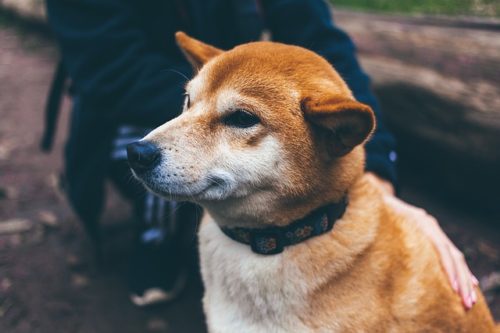For most pet parents, there is nothing we wouldn’t do to ensure that our fur children are safe, healthy, and happy. Often, it can even feel as though pets are just another member of the family! And as all parents must realize, sometimes taking care of the ones we love involves making those tough decisions for them.
We know all animals would prefer to avoid having any type of medical or surgical procedure done to them. However, the choice simply is not up to them, so it’s the dog owners job to make those hard choices in order to do what is best for their pet.
With that being said, dog neuter surgery is probably one of the most discussed surgical procedures for animals and has left many pet owners unsure of what to do. So if the decision to neuter your pet has been weighing heavily on you, it is important to do your research so you can feel comfortable knowing what to expect after dog neuter surgery.
Depending on how you feel personally, making the decision to have your pet neutered can be more difficult than you think. Many owners are concerned about the potential side effects of the operation and how they could permanently alter the animal they once knew and loved. While some owners have reported significant changes in their pet’s personality post-surgery, others claim they noticed little-to-no changes at all. Regardless of where you stand on dog neuter surgery, it never hurts to take the time to get the facts before making a final decision.
Benefits of Surgery
 For those pet owners that are in favor of dog neuter surgery, the benefits greatly outweigh any cons. Some argue, that by spaying or neutering your pet, you help to control the number of homeless animals which has now turned into a crisis. Sadly, millions of healthy dogs and cats are being euthanized in the United States each year simply because they’re unable to find a decent, loving home.
For those pet owners that are in favor of dog neuter surgery, the benefits greatly outweigh any cons. Some argue, that by spaying or neutering your pet, you help to control the number of homeless animals which has now turned into a crisis. Sadly, millions of healthy dogs and cats are being euthanized in the United States each year simply because they’re unable to find a decent, loving home.
Spaying also helps prevent uterine infections and breast tumors in dogs, which are malignant or cancerous in about 50% of canines- female dogs in particular. If you have a female dog, it is recommended to spay her before she goes into heat for the first time. This will help to give her the best protection from these unpleasant diseases in the future. Also, in addition to helping your dog avoid diseases, your female will no longer go into heat after she has been spayed. For males, dog neuter surgery has been known to help prevent testicular cancer and some prostate problems.
Behavioral Changes
One of the most reported benefits of having your dog neutered is a positive shift in behavior. It is believed that animals that have not been neutered are more likely to mark their territory by expelling strong-smelling urine all over the house. Dogs marking in the house is a major issue in pets that have not been neutered. Your dog also might be less likely to mount other dogs, people and inanimate objects after he’s neutered. Some canine aggression problems may be avoided by early neutering.
When To Neuter Your Pet
Traditionally, the age most dog owners choose to neuter their pet is between six and nine months. However, puppies as young as eight-weeks-old can be neutered as long as they are healthy. If you do not opt for the surgery at the early stages of your animal’s life, you can still have your dog neutered as an adult. However, there is a slightly higher risk of potential post-surgery complications that can occur in dogs that are older, overweight or suffering from other health problems. But remember, if you have any questions or concerns, you can always reach out to your veterinarian to discuss the best time to neuter your pet.
Post-Surgery
 After surgery, you should receive a set of detailed instructions from your Veterinarian outlining what you can expect after the dog neuter surgery. Depending on the procedure performed, medication may be sent home with your pet, that will also include specific instructions for administering. In addition to your vet’s recommendations, here are a few tips for ensuring your pup has a safe and comfortable recovery:
After surgery, you should receive a set of detailed instructions from your Veterinarian outlining what you can expect after the dog neuter surgery. Depending on the procedure performed, medication may be sent home with your pet, that will also include specific instructions for administering. In addition to your vet’s recommendations, here are a few tips for ensuring your pup has a safe and comfortable recovery:
- Make sure your pet has a quiet place to rest indoors, away from other animals.
- Prevent your pet from running or jumping for at least two weeks.
- Don’t allow your pet to lick the incision site, as it can cause an infection for your dog.
- Try to avoid bathing your pet for at least ten days after surgery.
- Check the incision site daily to make sure the affected area is healing properly.
- Call your veterinarian right away if you notice any of the following after the surgery:
-
- Any sign of redness, swelling or discharge in this area.
- The incision has become agape or vulnerable.
- If your pet is lethargic, has a decreased appetite, is vomiting or has diarrhea.
-
The important thing to remember here is that the benefits far outweigh the cons. Neutering your dog is not only responsible, but has also proven to reduce your pup’s risk of other health conditions down the road. For more information regarding your individual pet, you should consult with your veterinarian to discuss further options.




